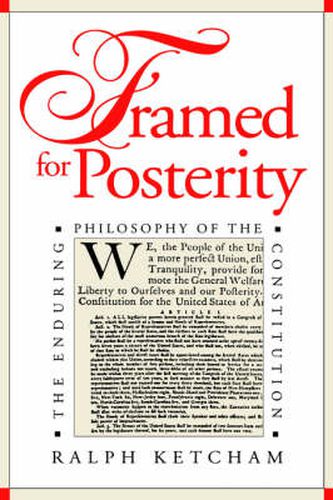Readings Newsletter
Become a Readings Member to make your shopping experience even easier.
Sign in or sign up for free!
You’re not far away from qualifying for FREE standard shipping within Australia
You’ve qualified for FREE standard shipping within Australia
The cart is loading…






This title is printed to order. This book may have been self-published. If so, we cannot guarantee the quality of the content. In the main most books will have gone through the editing process however some may not. We therefore suggest that you be aware of this before ordering this book. If in doubt check either the author or publisher’s details as we are unable to accept any returns unless they are faulty. Please contact us if you have any questions.
In Marbury v. Madison, Chief Justice John Marshall defined the Constitution as
a superior, paramount law , one that supersedes the laws passed by Congress and state legislatures. What makes it paramount? This book sets out to recover the enduring principles, purposes, and meanings that inform the founders’ charter and continue to offer us political guidance more than 200 years later. In so doing, it steers a middle course between
originalists , who restrict interpretation to constitutional specifics, and
relativists , who adapt the Constitution to the moment by ignoring original meaning.
Original intent , Ralph Ketcham argues, is best discerned by a study of the political climate that nourished the Constitution and the Bill of Rights and, more particularly, by undertaking the broader meanings, intentions, and purposes of the framers. To recover this full context of political thinking, Ketcham delves not only into the meaning of the documents but also into the connotations of the framers’ vocabulary, the reasoning behind both accepted and rejected propositions, arguments for and against, and unstated assumptions. In his analysis the fundamental or enduring principles are republicanism (as part of the broader doctrine of balance of powers). Ketcham answers those who question the relevance to modern constitutional interpretation of the finding that the founders were both republican and liberal. He asserts that the rights-protecting character of the Constitution and the Bill of Rights derived from the founders’ belief that private rights depended upon active government and public virtue. In other words, private liberties rested on the citizenry’s right to self-governance.
$9.00 standard shipping within Australia
FREE standard shipping within Australia for orders over $100.00
Express & International shipping calculated at checkout
This title is printed to order. This book may have been self-published. If so, we cannot guarantee the quality of the content. In the main most books will have gone through the editing process however some may not. We therefore suggest that you be aware of this before ordering this book. If in doubt check either the author or publisher’s details as we are unable to accept any returns unless they are faulty. Please contact us if you have any questions.
In Marbury v. Madison, Chief Justice John Marshall defined the Constitution as
a superior, paramount law , one that supersedes the laws passed by Congress and state legislatures. What makes it paramount? This book sets out to recover the enduring principles, purposes, and meanings that inform the founders’ charter and continue to offer us political guidance more than 200 years later. In so doing, it steers a middle course between
originalists , who restrict interpretation to constitutional specifics, and
relativists , who adapt the Constitution to the moment by ignoring original meaning.
Original intent , Ralph Ketcham argues, is best discerned by a study of the political climate that nourished the Constitution and the Bill of Rights and, more particularly, by undertaking the broader meanings, intentions, and purposes of the framers. To recover this full context of political thinking, Ketcham delves not only into the meaning of the documents but also into the connotations of the framers’ vocabulary, the reasoning behind both accepted and rejected propositions, arguments for and against, and unstated assumptions. In his analysis the fundamental or enduring principles are republicanism (as part of the broader doctrine of balance of powers). Ketcham answers those who question the relevance to modern constitutional interpretation of the finding that the founders were both republican and liberal. He asserts that the rights-protecting character of the Constitution and the Bill of Rights derived from the founders’ belief that private rights depended upon active government and public virtue. In other words, private liberties rested on the citizenry’s right to self-governance.